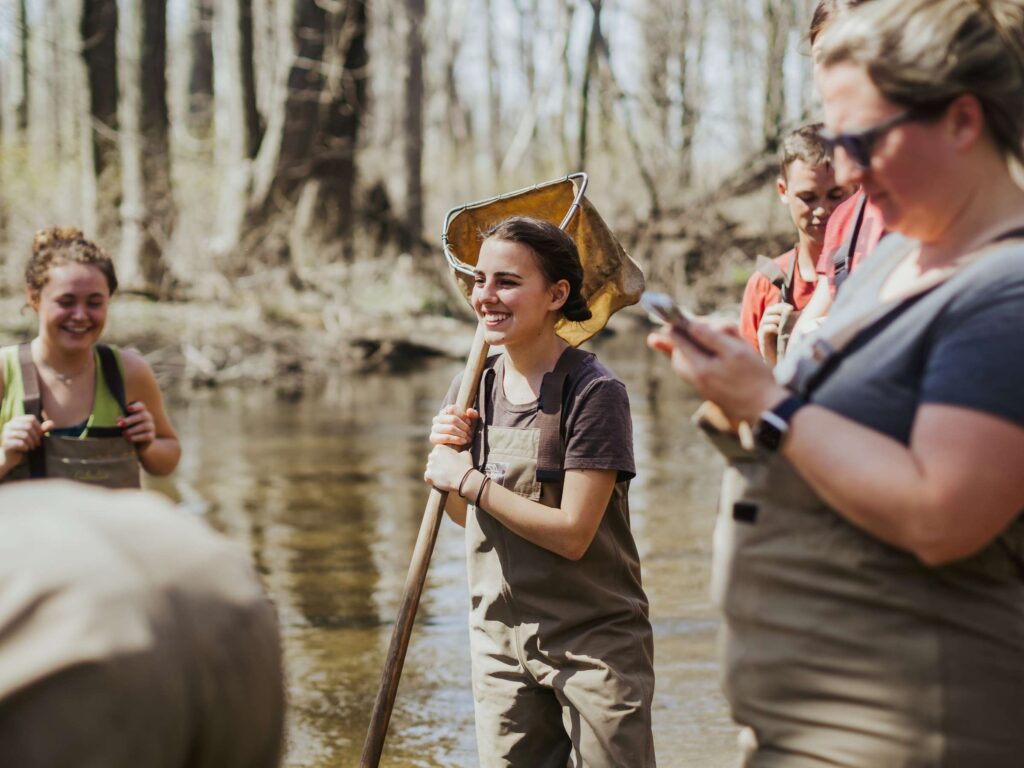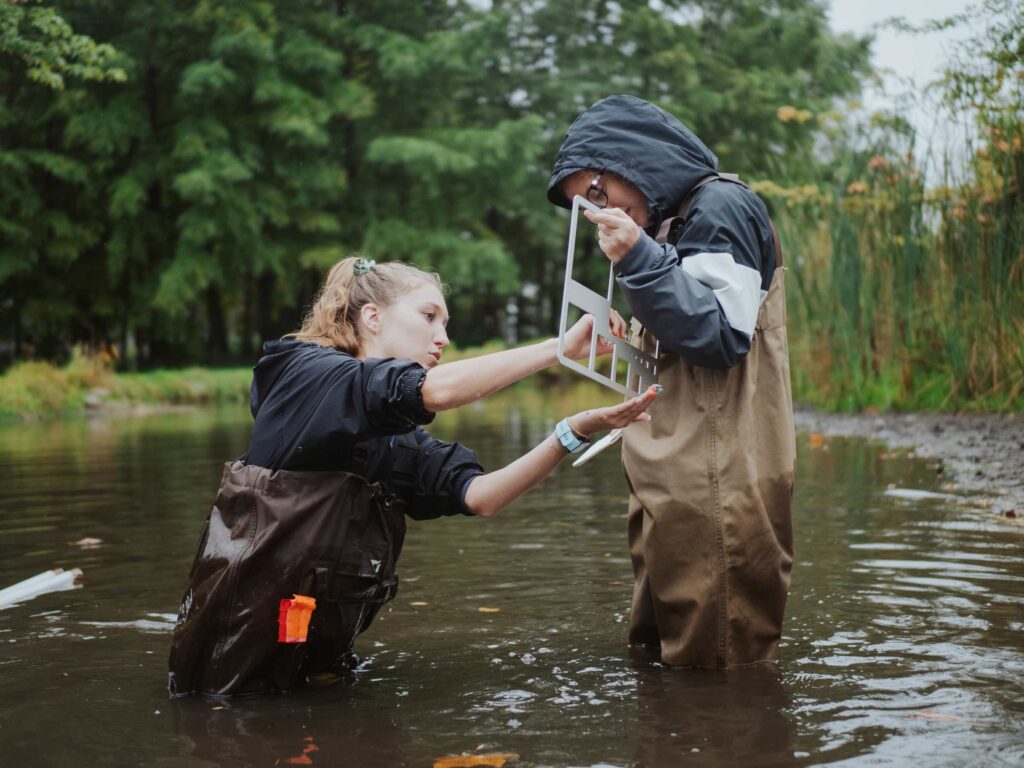
What Can You Do with an Environmental Science Degree?

When you think of jobs with environmental science degrees, what comes to mind? You might think of people in waders standing waist-deep in a lake, taking samples of the water. Or perhaps you think of a park ranger monitoring fire conditions at a national park. But did you know this field is not just for those who want to be alone out in the environment? There are just as many opportunities to work with people and with organizations in order to restore the relationships found in the environment.
So, what can you do with an environmental science degree? The answer might just be more expansive than you think. A good place to start is understanding the three main categories of jobs with environmental science degrees: for-profit, government, and nonprofit.
For-Profit
Perhaps you are most interested in working for a corporation. You might be wondering, What can you do with an environmental science degree for a business?
There are many jobs available for environmental scientists at large corporations. Many have entire teams dedicated to the environment. These people look at things like land acquisitions, how their plants influence local bodies of water, and the impact the corporation has on air quality at their manufacturing facilities. These teams often help senior leadership consider the environmental implications of their decisions before it’s too late.
There are other companies that are solely committed to environmental restoration work. For instance, environmental consulting companies are devoted to helping their clients look through an environmental lens. This type of company is often hired for specific restoration projects or studies.

Government
What can you do with an environmental science degree in the government space? All levels of government are in need of environmental professionals – from an international scale all the way to small towns.
International
The World Health Organization is one good example of an international governmental entity that must consider environmental impact. Did you know that healthier environments could prevent almost one-quarter of the global burden of disease? There are many other large-scale governmental organizations with a need for environmental input.
Federal
At the federal level, the U.S. Environmental Protection Agency (EPA) employs more than 17,000 individuals alone. Other commonly known environmental entities include the U.S. Geological Service, the U.S. Fish and Wildlife Service, and the U.S. Department of Agriculture.
State
At the state level, there are many employment opportunities. In Indiana alone, you can work for the Indiana Department of Environmental Management or the Indiana Department of Natural Resources. When you think about these roles being present in all 50 states with diverse resources and topographies — your options get quite exciting!
County
Think about your county’s parks and recreation department or health department. These governmental organizations need an environmental perspective as well.
City/Town
Lastly, take it down to as granular as your city or town’s stormwater management team. This function requires several coordinators and planners who are employed by local municipalities.

Nonprofit
Finally, what can you do with an environmental science degree in the nonprofit sector? How can you use this degree to influence thought, to impact actions, and to effect sustainable change?
There are many global nonprofit organizations, such as the World Wide Fund for Nature and the Rainforest Alliance. These organizations raise awareness about issues that affect the environment in all parts of the world.
But there are also many great nonprofits that are working to improve very niche aspects of the environment. They might be studying particular organisms, such as a certain subset of plant. They might be serving a very particular locality. For instance, the Lilly Center for Lakes and Streams exclusively studies the waterways of Kosciusko County in Indiana. Or they might be tackling a specific topic — preserving habitats, rehabilitating degraded areas, encouraging people to get active out in the environment, etc. The opportunities in the private sector are plentiful, both large scale and small.
Purposeful Jobs with Environmental Science Degrees
Many of the Grace College environmental science program graduates were once asking this question, but after hands-on experience and intentional mentorship from experts in the field, they have found the right fit for them.
Since the program’s inception, Grace students have gone into all of these areas of work – from environmental policy in Washington D.C. to graduate school at The Ohio State University. We’ve watched our graduates go on to law school to work as environmental lawyers. We’ve had students become environmental consultants to work at the Department of Natural Resources. We’ve had students serve as city stormwater coordinators, wildlife controllers, teachers, agriculturalists, and environmental supporters in the military.
Learn more about our environmental science program, and apply today to take the first step of discovering which environmental job is right for you.
Previous Post

